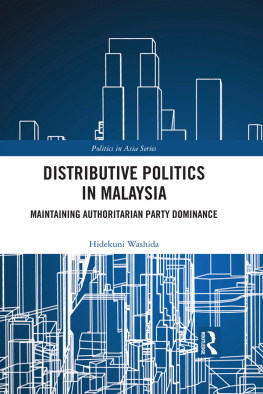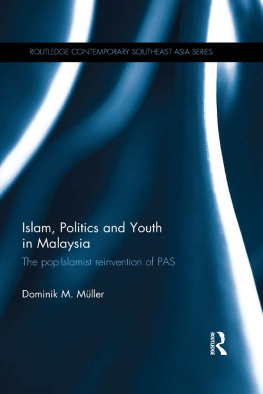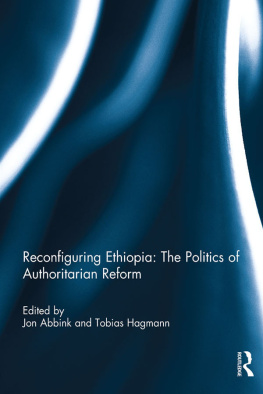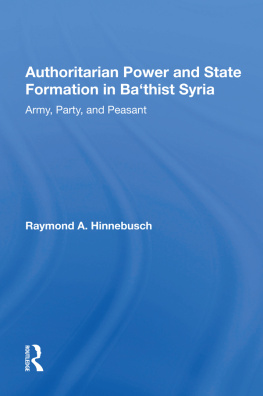Distributive Politics in Malaysia
The election on May 9, 2018, ended six decades of rule by the ruling coalition in Malaysia (Barisan Nasional or BN, formerly the Alliance). Despite this result, the BNs longevity and resilience to competition is remarkable. This book explores the mechanisms behind the emergence, endurance, fight for survival, and decline of the partys dominance.
Using a systematic analysis of key resources (budgets, posts, and seats), Washida challenges the conventional argument that a punitive threat to exclude opposition supporters from distributive benefits sustained the loyalty of the masses as well as the elites. He also calls into question whether the mere existence of party organization in and of itself enables leaders to credibly commit to power-sharing. Instead, he posits a theory of mobilization agency in which a party leader needs to design an effective incentive mechanism. In addition, he explains how the BN had manufactured legislative dominance by tactical gerrymandering and malapportionment.
The insights drawn from the Malaysian case can help deepen our understanding of the rise and fall of authoritarian parties and distributive politics in general.
Hidekuni Washida is Associate Professor of Political Science at Toyo University, Tokyo, Japan.
Politics in Asia Series
Japan and the Shaping of Post-Vietnam War Southeast Asia
Japanese Diplomacy and the Cambodian Conflict, 19781993
Andrea Pressello
Japans International Democracy Assistance as Soft Power
Neoclassical Realist Analysis
Maiko Ichihara
Reimagining Nation and Nationalism in Multicultural East Asia
Edited by Sungmoon Kim and Hsin-wen Lee
New Media Political Engagement and Participation in Malaysia
Sara Chinnasamy
China and Transboundary Water Politics in Asia
Edited by Hongzhou Zhang and Mingjiang Li
The Road to Federalism in Nepal, Myanmar and Sri Lanka
Finding the Middle Ground
Michael G. Breen
US-China Competition and the South China Sea Disputes
Edited by Huiyun Feng and Kai He
National Identity and Great-Power Status in Russia and Japan
Non-Western Challengers to the Liberal International Order
Tadashi Anno
Distributive Politics in Malaysia
Maintaining Authoritarian Party Dominance
Hidekuni Washida
For the full list of titles in the series, visit: www.routledge.com/Politics-in-Asia/book-series/PIA
First published 2019
by Routledge
2 Park Square, Milton Park, Abingdon, Oxon OX14 4RN
and by Routledge
711 Third Avenue, New York, NY 10017
Routledge is an imprint of the Taylor & Francis Group, an informa business
2019 Hidekuni Washida
The right of Hidekuni Washida to be identified as author of this work has been asserted by him in accordance with sections 77 and 78 of the Copyright, Designs and Patents Act 1988.
All rights reserved. No part of this book may be reprinted or reproduced or utilised in any form or by any electronic, mechanical, or other means, now known or hereafter invented, including photocopying and recording, or in any information storage or retrieval system, without permission in writing from the publishers.
Trademark notice: Product or corporate names may be trademarks or registered trademarks, and are used only for identification and explanation without intent to infringe.
British Library Cataloguing-in-Publication Data
A catalogue record for this book is available from the British Library
Library of Congress Cataloging-in-Publication Data
Names: Washida, Hidekuni, author.
Title: Distributive politics in Malaysia: maintaining authoritarian
party dominance/Hidekuni Washida.
Description: New York: Routledge, 2019. | Series: Politics in
Asia series | Includes bibliographical references and index.
Identifiers: LCCN 2018027986 | ISBN 9781138634510 (hardback) |
ISBN 9781315206752 (e-book)
Subjects: LCSH: Barisan Nasional (Organization) | Patronage,
PoliticalMalaysia. | Power (Social sciences)Malaysia. |
Political leadershipMalaysia. | MalaysiaPolitics and government21st century.
Classification: LCC JQ1062.A98 B377 2019 | DDC 320.9595dc23
LC record available at https://lccn.loc.gov/2018027986
ISBN: 978-1-138-63451-0 (hbk)
ISBN: 978-1-315-20675-2 (ebk)
Typeset in Galliard
by Apex CoVantage, LLC
May 9, 2018, was a sleepless night for the Malaysian people. For the first time in its history, Malaysia experienced the governments turnover through an election, which ended the six decades of dominance by the ruling party, Barisan Nasional (BN or National Front, formerly the Alliance). Countering some allegations, the BN reluctantly but peacefully handed over power. Malaysia will now be listed as another case of democratization through elections. Despite the defeat, the BNs resilience was outstanding in terms of its longevity and its relatively lenient style of authoritarian control. It is a good time to look back and explore how the party established its dominance, why it succeeded in staying in power for so long, and why it declined and lost power.
This book was originally written as a doctoral dissertation (the University of Tokyo, 2014) and owes a great deal to help and support from many people and institutions (remaining errors are my own). My first and deepest gratitude goes to my supervisor, Junko Kato (the University of Tokyo). Without her considerate and patient guidance, I could not have completed this project. I also appreciate dissertation committee members, Mitsugi Endo, Yoshiki Kaneko, Tsuyoshi Shimizu, and Keiichi Tsunekawa, and an advisor, Susumu Yamakage.
In addition, I would like to thank Yuko Kasuya (Keio University) for inviting me to various opportunities, including a research project about malapportionment, and for sharing practical advice about preparing a book proposal. I am also grateful to Masashi Nakamura, a Malaysia expert at the Institute of Development Economies (IDE), for his advice after graduate school, as well as an invitation to become a member of his book project. I also wish to thank Yuriko Takahashi (Waseda University), my mentor since my graduate years and a key booster of my interest in distributive politics.
I am also indebted to senior scholars, fellows, reviewers, commentators, and participants at conferences and seminars for their helpful advice and comments. There is not enough space to list all of these individuals, but I would like thank Erica Frantz, Kentaro Fukumoto, Masaaki Higashijima, Taeko Hiroi, Yusaku Horiuchi, Keisuke Hotta, Tsukasa Iga, Makoto Imai, Gaku Ito, K. S. Jomo, Yuta Kamahara, Hiroto Katsumata, Takeshi Kawanaka, Hirokazu Kikuchi, Ayako Masuhara, Ryo Nakai, Toshio Nemoto, Yoshimi Nishi, Yoshikuni Ono, Kaori Shinozaki, Ayame Suzuki, Sanae Suzuki, Takashi Torii, Shin Toyoda, Junichiro Wada, Hiroyuki Yamamoto, and Taku Yukawa (in alphabetical order). In addition, I appreciate the suggestions and constructive criticisms of anonymous reviewers. I also want to thank Yukiko Taniguchi for supporting the construction of the census dataset, Yosuke Okada for teaching efficient data management techniques, and Itaru Saito for giving advice on book publication. This project is also indebted to the rich research infrastructure of Southeast Asia studies in Japan, in particular, the IDE. In addition, my deep respect and appreciation go to many individuals who kindly spent time sharing their understanding of Malaysian politics.












